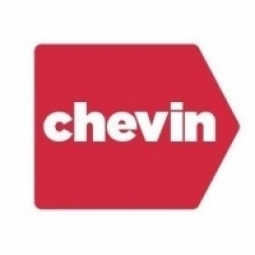Technology Category
- Functional Applications - Computerized Maintenance Management Systems (CMMS)
- Functional Applications - Fleet Management Systems (FMS)
Applicable Industries
- Equipment & Machinery
- Transportation
Applicable Functions
- Logistics & Transportation
- Maintenance
Use Cases
- Real-Time Location System (RTLS)
- Track & Trace of Assets
Services
- System Integration
About The Customer
Tropical Shipping is a leading cargo transportation service provider that operates from Canada and South Florida to The Bahamas and the Caribbean. The company operates a diverse fleet of 17 vessels and thousands of assets, including five mobile harbour cranes, 18 straddle carriers, and various reach stackers and forklifts capable of handling up to 80,000-pound capacity. Tropical Shipping is committed to maintaining the quality of its equipment for operations, stevedoring, warehousing, and security. The company prioritizes equipment reliability and compliance with health and safety regulations.
The Challenge
Tropical Shipping, a cargo transportation service provider operating a fleet of 17 vessels and thousands of assets, faced significant challenges in maintaining its diverse range of equipment. The company's operation is not a classic roadgoing fleet but involves managing the movement of containers on and off their vessels. The priority for Tropical Shipping was equipment reliability, as any lack of upkeep and reliability could greatly impact the business. The company was responsible for maintaining the quality of equipment for operations, stevedoring, warehousing, and security. This meant satisfying not only external customers but also internal customers. Additionally, the company had to comply with various legislations, particularly those related to health and safety. Managing such a diverse range of equipment and complying with numerous regulations required a robust system that could provide real-time, accurate data.
The Solution
Tropical Shipping addressed these challenges by implementing a good maintenance regimen and fostering cooperation between various departments. The company also leveraged technology to manage the wealth of information it received. The key was to have real-time, accurate data that could drive self-correcting behavior. The company focused on utilizing its existing systems to their maximum capabilities rather than investing in new software. This involved examining how the systems were being used and whether they could be used to their full extent to satisfy the operation. If not, the company considered upgrading or improving the software. Tropical Shipping also aimed to be proactive or preventive rather than reactive, constantly looking at ways to improve and use KPIs and create reports to their advantage. The company was also exploring ways to automate more to reduce the workload for employees and be more efficient and productive.
Operational Impact

Case Study missing?
Start adding your own!
Register with your work email and create a new case study profile for your business.
Related Case Studies.

Case Study
Smart Water Filtration Systems
Before working with Ayla Networks, Ozner was already using cloud connectivity to identify and solve water-filtration system malfunctions as well as to monitor filter cartridges for replacements.But, in June 2015, Ozner executives talked with Ayla about how the company might further improve its water systems with IoT technology. They liked what they heard from Ayla, but the executives needed to be sure that Ayla’s Agile IoT Platform provided the security and reliability Ozner required.

Case Study
IoT enabled Fleet Management with MindSphere
In view of growing competition, Gämmerler had a strong need to remain competitive via process optimization, reliability and gentle handling of printed products, even at highest press speeds. In addition, a digitalization initiative also included developing a key differentiation via data-driven services offers.

Case Study
Predictive Maintenance for Industrial Chillers
For global leaders in the industrial chiller manufacturing, reliability of the entire production process is of the utmost importance. Chillers are refrigeration systems that produce ice water to provide cooling for a process or industrial application. One of those leaders sought a way to respond to asset performance issues, even before they occur. The intelligence to guarantee maximum reliability of cooling devices is embedded (pre-alarming). A pre-alarming phase means that the cooling device still works, but symptoms may appear, telling manufacturers that a failure is likely to occur in the near future. Chillers who are not internet connected at that moment, provide little insight in this pre-alarming phase.

Case Study
Premium Appliance Producer Innovates with Internet of Everything
Sub-Zero faced the largest product launch in the company’s history:It wanted to launch 60 new products as scheduled while simultaneously opening a new “greenfield” production facility, yet still adhering to stringent quality requirements and manage issues from new supply-chain partners. A the same time, it wanted to increase staff productivity time and collaboration while reducing travel and costs.

Case Study
Integration of PLC with IoT for Bosch Rexroth
The application arises from the need to monitor and anticipate the problems of one or more machines managed by a PLC. These problems, often resulting from the accumulation over time of small discrepancies, require, when they occur, ex post technical operations maintenance.

Case Study
Data Gathering Solution for Joy Global
Joy Global's existing business processes required customers to work through an unstable legacy system to collect mass volumes of data. With inadequate processes and tools, field level analytics were not sufficient to properly inform business decisions.







